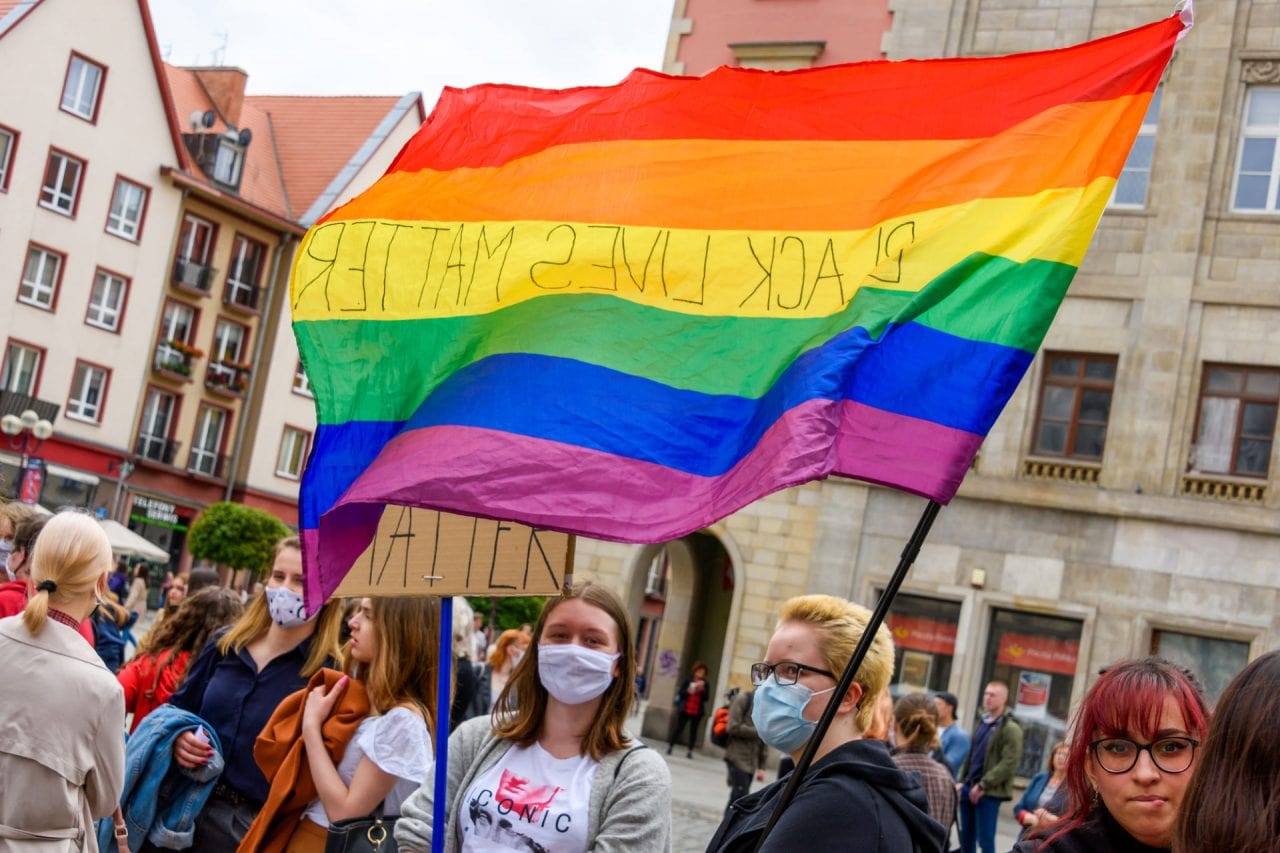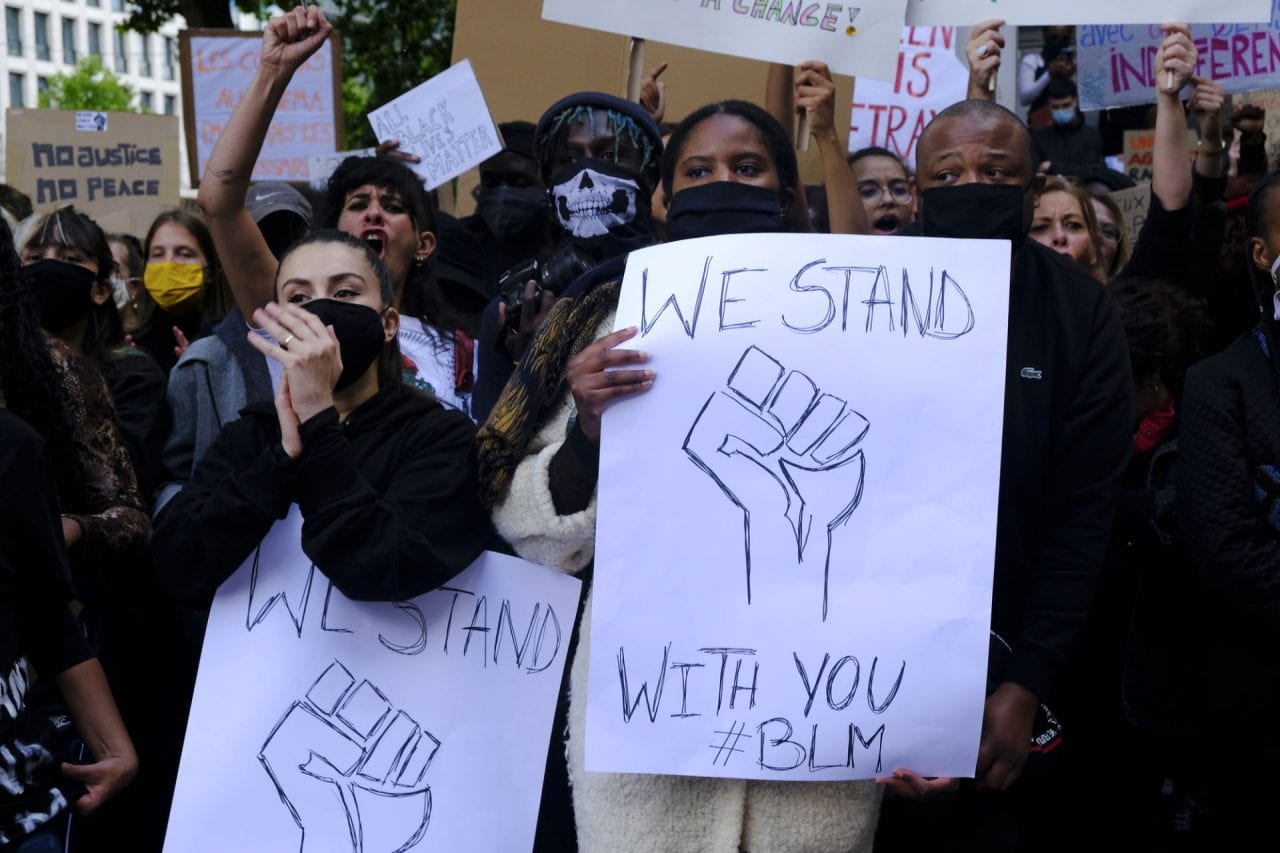“We stand with you.” “Silence is violence.” “Enough is enough.”
These are sentiments that have been expressed by various businesses within the sextech industry in the weeks since George Floyd was murdered by police officers in Minneapolis on May 25. Floyd’s death sparked a global wave of protests in the name of the #BlackLivesMatter movement, with record numbers of people speaking out against systemic racism and police brutality worldwide.
In the US, African-Americans account for three percent of workers at the country’s five biggest technology firms, and “probably less” at smaller ones, according to The Economist. Big Tech’s response thus far has included pledging $100m towards educational resources (YouTube and Apple) and promising 30% of its workforce will be from “underrepresented groups” by 2025 (Google).
Shifting to the ‘sex’ prefix of ‘sextech’, support from adult entertainment providers was met with criticism from some Black performers, who spoke out against discrimination within the industry.
When porn provider Brazzers tweeted its solidarity to the movement, adult performer Kristi Maxx responded: “We would love for y’all to diversify your talent and shoot more black women.”
Yesterday (June 23), a collective was set up in response to the racism and disparate wages within the adult entertainment industry.
The US-based BIPOC [Black, indigenous, people of color] Adult Industry Collective, made up of performers, directors and producers in the commercial sex trade, is now aiming to bring about change to make the adult industry “a safe place for all to work, explore, and thrive, regardless of ethnicity, gender identity or sexual orientation.”
In the announcement sent out, the collective requests that race-based wage disparity is eliminated, more BIPOC people are employed in “below-the-line” aspects of production, and an industry-funded career development program can be implemented, and for performers looking to move behind the camera to be able to do so (through internships and employment opportunities). The group also suggests changes to language used – specifically the – ‘interracial’ label – when referring to marginilized groups.
Sextech bridges the gap between sex and tech businesses, but what’s been done so far – and crucially – what more can be done to ensure that the outpouring of support and allyship extends beyond these past few weeks, to be implemented as part of a longer-term business strategy?

The need for real action
Systemic racism runs through the sextech and adult entertainment industries, as it does in all other business sectors and areas of society.
While there is still so much work to be done, the conversation around the BLM protests has provided an opportunity for companies to address diversity problems within their businesses.
Raven V. Faber, founder and CEO of EngErotics, told SEXTECHGUIDE: “I think the sextech industry has a long way to go before I can say with any certainty that it is truly an inclusive industry. Representation is extremely important and, not surprisingly, I don’t really see much representation for marginalized demographics when I look at the sextech industry as a whole.”
Clearly, if the sextech industry wants to claim a progressive and inclusive image, something needs to change. This need goes beyond posting black squares, social media, a trend that’s been called out by many as “performative allyship”, a virtual “pat on the back”. These may have good intentions – but is superficial when firms don’t do anything to enact real systemic change beyond their public display of alliance.
Faber added: “Let’s now see some action beyond your woke BLM social media posts. Tell us what you plan on doing to help facilitate change and then show us you care by actually doing it. It’s one thing to talk the talk but if you want to show genuine support, you’d better be prepared to walk the walk.”
Sex toy retailer Unbound showed its support on June 19 last week by making ‘Juneteeth’ a company holiday, to mark the day in 1865 when a group of enslaved Black Americans in Texas were told they were finally free, two years after the Emancipation Proclamation was signed.
Unbound’s COO Nisreen Hasib told SEXTECHGUIDE about the further work the company is doing to support their POC employees, including: providing a stipend to all team members to purchase educational materials, such as books or online lectures that discuss structural racism and race relations in the United States, and providing its Black employees with a membership to Ethel’s Club, a social club for people of color.
She said: “As leaders, it’s important to demonstrate from the top that we will hold ourselves accountable to learning, being better, and correcting our mistakes when we make them. In addition to supporting our employees, it was also important for us to recognize the pivotal role Black women, femmes, and non-binary people played in laying the foundation that all of sextech stands on. Acknowledging and honoring these contributions must be done to provide true support to BIPOC [Black, indigenous, people of colour] in the sextech community.”
Here are some actionable steps you can take to demonstrate real support as a sextech business in response to the #BlackLivesMatter movement.
Carry out a diversity pay gap report
Whether you work for a start-up or a huge conglomerate, pay disparity between white and BAME people remains to be an issue, with women of color feeling the pay gap most severely, earning just 64 cents to the dollar compared to white men. As such, commissioning a report looking into your firm’s pay patterns in relation to ethnicity would be a good place to start. If you don’t have the level of authority to carry out such reviews, put pressure on those who can by starting a petition, raising it with your HR team or joining a union.
Faber told SEXTECHGUIDE: “The onus is on the industry’s majority leaders (who are [often] cisgender, hetereosexual, White people) in sextech to level the playing field by getting involved and being vocal advocates for change in everything, from VC or Angel funding for minority-owned sextech startups, to more inclusive and aware marketing, to more conscientious hiring practices.”
Pay disparity goes beyond salaries, too. If your company offers stock ownership (ESOP) for its employees, ask if this disproportionately favours white staff as a direct result of higher average salaries.
Prioritise making a supportive working environment
As Habib did at Unbound by honoring Juneteenth as a company holiday, think about what you can do to show support for your Black and non-white colleagues, not just right now, but throughout the year (and every year).
Could you offer flexibility around deadlines or make room for paid mental health leave? Find ways to create the safe space needed to retain the talent you have, and instil good practice for your general strategy going forward.
Look at your hiring process
In the UK, just 15% of the digital tech workforce are from a BAME background. How you hire new staff largely depends on the size and scope of your business, but there are tech solutions available that promise to eliminating hiring bias and make the process fairer across the board (check out Applied for starters). On the funding side, Diversity VC is a partnership aiming to address the disproportionate amount of non-white venture capital founders. It runs an internship programme, Future VC, that gets people from backgrounds currently under-represented in tech investing into venture capital firms.
Check Warner, founder and CEO, told SEXTECHGUIDE: “Whether a young tech startup can raise money, or not, often decides whether they are successful. Therefore, it follows that this process should be as fair as possible, and not riddled with bias and prejudice, either conscious or otherwise.
“It is our belief that making tech investment fairer will increase the likelihood of companies being founded by people from backgrounds that are currently underrepresented in technology and entrepreneurship.”
Diversify your network
One simple way to begin the process of making bigger changes is to diversify your online and offline networks. Get involved with emerging initiatives set up to address the opportunity gaps that pervade due to racial inequality, such as OneTech, which plans to support underrepresented tech founders in London (it’s currently seeking mentors – click here for more details). Foundervine is a global platform addressing skills-based inequalities by helping people from all backgrounds build startups from scratch, and UK-based startup community YSYS has just launched an Advocates Community “committed to campaigning against the exclusion of diverse communities in tech”. While following accounts and liking posts is helpful to spread important messages and resources to a wider audience, make sure you’re backing up your support with action, too.

Financially contribute to other small businesses and startup projects
One way to back up your support with meaningful action is by getting your wallet out. Support sex educators who are providing invaluable online resources directly through their Paypal or Venmo, or through a sponsorship deal. One tech solution we live is Kwando, which bills itself as a “modern collection pot for Black communities”, where you can chip in a monthly donation to support Black projects and businesses chosen by fellow Kwanda community members.
Ask your investors what they’re doing
While you are in control of the individual actions you can take, how can you hold those in more influential positions accountable? Entrepreneur and founder Sharmadean Reid recently tweeted this advice: “When you send your investor update this month, don’t bang on about how you sorted your public profiles out with black squares and whatnot, ask them what they – the millionaires and billionaires – are doing for Black folk.”
As Faber told SEXTECHGUIDE: “Invest in Black people. Hire Black people. Pay Black people. And do the same for every other demographic without a seat at the table.”
Quite frankly, we couldn’t have put it better ourselves.






Leave a Reply